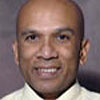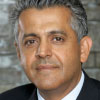Conference ProgramFriday, May 17, 2019The CABPS Conference Program is available for downloading in the following formats: |
 |
|
Time
|
Activity
|
|||
| 07:00 - 17:00 | REGISTRATION OPEN Room: Convention Level Foyer |
|||
| 07:00 - 09:00 |
|
|||
| 08:00 - 08:05 | Welcome and Opening Remarks Room: Toronto II/III Speaker: Dr. Stephen Glazer Details
Dr. Stephen Glazer is a board certified specialist from the University of Toronto in Internal Medicine and Intensive Care Medicine. He is also a Diplomate of the American Board of Obesity Medicine. In April 2010 he was appointed as the Medical Director for the Bariatric Surgical Program at Humber River Regional Hospital. He was instrumental in redeveloping their comprehensive bariatric surgical program. In that year, the bariatric surgical program was nominated as a Leading Practice by Accreditation Canada. In 2012 Dr. Glazer was appointed as a the Director of the only hospital-based Medical Bariatric Program for the Greater Toronto Area, which has enjoyed great growth and development due to the significant contributions of its multidiscipline team members. Dr. Glazer's commitment to the Obesity Epidemic is further displayed by his participation in many committees through the Ontario Bariatric Network and the Canadian Association of Bariatric Physicians and Surgeons. He has a strong interest in program development, quality care initiatives, and physician education. He has personally been involved in direct patient care of over thousands of bariatric patients in the attempt to facilitate weight loss for improved overall health. His research interests include perioperative risk assessment and management as well as sleep apnea in the morbidly obese. |
|||
| 08:05 - 08:15 | Presidential Address Room: Toronto II/III Speaker: Dr. Laurent Biertho † Details
Dr Laurent Biertho is Clinical Professor of Surgery at Laval University. After being trained in Biomedical Sciences (1993) and Medicine (1998) at the University of Liege, Belgium, he completed his residency in General Surgery (2004). He underwent post-doctoral training in Minimally Invasive surgery at the Mount Sinai School of Medicine in New York, USA, and McMaster University, Canada (2004-2006). At the end of his training, he was appointed Assistant Professor at McMaster University. He was then offered a position as an Associate Professor of Surgery at Laval University, to introduce minimally invasive bariatric and metabolic surgery at the Institut Universitaire de Cardiologie et Pneumologie de Québec. He is the director of the fellowship program in Bariatric and Metabolic surgery at Laval University and co-director of the Research Chair in Bariatric and Metabolic Surgery. He is also the president of the Canadian Association of Bariatric Physicians and Surgeons. † Denotes real or potential conflict of interest. Speaker/Presenter requested to declare in his/her presentation slide deck. |
|||
| Plenary Session |
08:15 - 09:30 | PEDIATRIC TALKS Room: Toronto II/III Chair: Dr. Jill Hamilton † Details
Jill Hamilton (MD, MSc, FRCPC) is a Pediatric Endocrinologist at the Hospital for Sick Children, Senior Associate Scientist at the Research Institute, and Professor of Paediatrics at University of Toronto. Her clinical work is in endocrinology and diabetes with a particular focus in the areas of complex obesity (including hypothalamic obesity and bariatric surgery patients). She is the medical director of the SickKids Team Obesity Management Program (STOMP) and co-chair of the Ontario Paediatric Bariatric Network (OPBN). Her research focuses on (i) the metabolic complications of obesity in childhood, (ii) biologic and psychosocial determinants of obesity, and (iii) obesity treatment. She has over 100 peer-reviewed publications and has received research funding from agencies including Canadian Institutes for Health Research (CIHR), National Institute of Health (NIH), Heart and Stroke Foundation and Canadian Diabetes Association. † Denotes real or potential conflict of interest. Speaker/Presenter requested to declare in his/her presentation slide deck. |
||
| 08:15 - 08:35 | Adolescents with Severe Obesity: Their Perspectives on Peer and Romantic Relationships Speaker: Dr. Alene Toulany Details
Dr. Toulany is a Pediatrician and Adolescent Medicine Specialist at The Hospital for Sick Children and Assistant Professor in the Department of Paediatrics, University of Toronto. Dr. Toulany is also the Associate Director and SickKids Lead for the Centre for Quality Improvement and Patient Safety. She completed her medical degree at Dalhousie University and postgraduate specialty training at SickKids. Dr. Toulany is a graduate of the US VA Quality Scholars Fellowship from Dartmouth College Institute for Health Policy & Clinical Practice and has recently completed a MSc in Health Services Research at the Institute for Health Policy, Management and Evaluation, University of Toronto. Her research interests include quality of care and health services outcomes for young people with complex, chronic medical and mental illness and the critical period of transition to adult care. Clinically, she works with teens around issues of body image, obesity and disordered eating, sleep, coping with chronic illness, peer relationships, and sexual health. Presentation Overview Adolescence is one of the most rapid phases of human development. It is a particularly challenging time when young people must learn to cope with the dramatic changes in their physical, cognitive and psychosocial environments. The “adolescent experience” for youth with obesity is often different than their healthy weight peers. In particular, weight stigmatization and discrimination are chronic stressors that may have a profound effect on relationships and psychological well-being. Learning Objectives At the end of this presentation, participants should be able to:
|
|||
| 08:35 - 08:55 | Predictors of Weight Changes in Adolescents Post-Bariatric Surgery Speaker: Dr. Jill Hamilton † Details
Jill Hamilton (MD, MSc, FRCPC) is a Pediatric Endocrinologist at the Hospital for Sick Children, Senior Associate Scientist at the Research Institute, and Professor of Paediatrics at University of Toronto. Her clinical work is in endocrinology and diabetes with a particular focus in the areas of complex obesity (including hypothalamic obesity and bariatric surgery patients). She is the medical director of the SickKids Team Obesity Management Program (STOMP) and co-chair of the Ontario Paediatric Bariatric Network (OPBN). Her research focuses on (i) the metabolic complications of obesity in childhood, (ii) biologic and psychosocial determinants of obesity, and (iii) obesity treatment. She has over 100 peer-reviewed publications and has received research funding from agencies including Canadian Institutes for Health Research (CIHR), National Institute of Health (NIH), Heart and Stroke Foundation and Canadian Diabetes Association. † Denotes real or potential conflict of interest. Speaker/Presenter requested to declare in his/her presentation slide deck. Presentation Overview Bariatric surgery remains the most effective tools to assist in weight loss and improvements in cardiometabolic health. Recent consensus guidelines have relaxed eligibility criteria for surgery in adolescents, but there remains a paucity of long term data regarding sustained weight loss and predictors of who will benefit most from these procedures in this age group. Recent guidelines will be highlighted, and local data from the SickKids Team Obesity Management Program (STOMP) will be presented, with a focus on predictors related to weight loss 1-2 years after surgery. Learning Objectives At the end of this presentation, participants should be able to:
|
|||
| 08:55 - 09:15 | Nutritional Management for Hyperphagia: Taming the Hunger Monster Speaker: Ms. Alissa Steinberg Details
Alissa Steinberg currently works as a Registered Dietitian for the SickKids Team Obesity Management Program (STOMP). Through this position she has developed a deeper understanding of the complex, physical and psychological issues that children with severe obesity typically face. By obtaining the Certified Diabetes Educator designation, she was able to create guidelines and nutrition education tools for patients with prediabetes and type 2 diabetes. In an effort to hone her research skills, she pursued a Master of Health Science (MHSc) degree in Nutrition Communication; and earned a publication in the Canadian Journal of Dietetic Practice and Research. Presentation Overview This presentation will discuss what is “hyperphagia”, key strategies for managing hyperphagia and behavioural management related to hyperphagia. A nutrition approach such as structure, routine, portions and food types will also be reviewed. Participants will receive a healthcare provider toolbox and "Let’s meet Matthew: putting it all together". Learning Objectives At the end of this presentation, participants should be able to:
|
|||
| 09:15 - 09:30 | Panel Discussion | |||
| Plenary Session |
09:30 - 10:30 | DUODENAL SWITCH Room: Toronto II/III Co-Chairs: Drs. Michel Gagner and Amin Andalib Details
Dr. Michel Gagner obtained his Medical Degree in 1982 and did his surgical training at McGill University from 1982-1988. He worked at the Cleveland Clinic where he co-founded the MIS Center (1995-1998). He was appointed Director of the MIS Center of Mount Sinai (NY), from 1998 to 2003. He then joined Weill-Cornell as Chief of Laparoscopic/Bariatric (2003-2007). He was Chair of Surgery at Mount Sinai (Miami), and is currently Professor at FIU, and senior consultant Montreal. In 2014, he founded WWO (World Without Obesity), for the education and development of metabolic surgery in Third World countries. He is also a board member of ASMBS foundation. Dr. Gagner is known for his contributions in MIS, in particular the first description of laparoscopic adrenalectomy (1992), laparoscopic pancreatectomy (distal/proximal) (1992-93), endoscopic neck surgery with parathyroidectomy in 1995, transgastric cholecystectomy in 1997 (NOTES), laparoscopic DS in 1999 and laparoscopic sleeve gastrectomy in 2000.
Dr. Andalib has joined the Division of General Surgery at McGill University as an Assistant Professor of Surgery in 2015. He specializes in Bariatric Surgery, which is the main focus of his clinical practice. He is also the Program Director for Bariatric Surgery Fellowship at McGill University. His research interests center on clinical outcomes, quality improvement, and patient safety projects in bariatric surgery. They include outcome assessment and risk reduction after bariatric surgery especially using large databases. |
||
| 09:30 - 09:45 | Preventing Nutritional Deficiencies After Duodenal Switch Speaker: Mr. Adam Bryant Details

Adam Bryant, BSc., BASc., RD Adam first graduated from McMaster University with a Bachelor of Science before deciding to pursue a career in nutrition. He then earned a Bachelor of Applied Science in Human Nutrition from the University of Guelph. Adam completed his dietetic internship at Mount Sinai Hospital in Toronto, and has worked for the Bariatric Surgery Program at the St. Joseph's Healthcare Hamilton Bariatric Centre of Excellence since 2011. He achieved his Certified Bariatric Educator credential in 2018. Adam is actively involved with the Ontario Bariatric Network, is co-chair of the Communications Committee and is currently on the Board of Directors for the Canadian Association of Bariatric Physicians and Surgeons. Presentation Overview This talk will discuss prevention strategies for common macro and micronutrient deficiencies after duodenal switch. Learning Objectives At the end of this presentation, participants should be able to:
|
|||
| 09:45 - 10:00 | Addressing Surgical Complications after DS Speaker: Dr. Nicole Kolozsvari Details

Nicole Kolozsvari, MD, MSc., FRCS(C) Dr. Nicole Kolozsvari is a general surgeon at the Ottawa Hospital. She received her medical degree from the University of Western Ontario. She then completed her General surgery residency, Master’s of Science and Minimally Invasive Bariatric Surgery Fellowship all at McGill University. She joined the Department of Surgery at the University of Ottawa in 2016, with a practice focused on bariatric and foregut surgery. She is also the program director for the University of Ottawa Bariatric Surgery Fellowship. Presentation Overview This presentation will discuss the identification and management of surgical complications following duodenal switch. Learning Objectives At the end of this presentation, participants should be able to:
|
|||
| 10:00 - 10:15 | Controversies Surrounding Single-Anastomosis DS Speaker: Dr. Amin Andalib Details
Dr. Andalib has joined the Division of General Surgery at McGill University as an Assistant Professor of Surgery in 2015. He specializes in Bariatric Surgery, which is the main focus of his clinical practice. He is also the Program Director for Bariatric Surgery Fellowship at McGill University. His research interests center on clinical outcomes, quality improvement, and patient safety projects in bariatric surgery. They include outcome assessment and risk reduction after bariatric surgery especially using large databases. Presentation Overview This presentation will discuss the controversies surrounding Single-Anastomosis DS. At the end of this presentation, participants should be able to:
|
|||
| 10:15 - 10:30 | Panel Discussion | |||
| 10:30 - 10:55 |
|
|||
| 10:55 - 11:30 |
Details

John Morton, MD, MPH, FACS Division Chief, Bariatric and Minimally Invasive Surgery Dr. John Morton is Vice-Chair for Quality and Division Chief for Bariatric and Minimally Invasive Surgery for the Department of Surgery at the Yale School of Medicine. From 2003-2019, he served as Chief of Bariatric and Minimally Invasive Surgery, Clinic Chief for the Bariatric and Metabolic Inter-Disciplinary Clinic and Director of Bariatric and Minimally Invasive Surgery Fellowship at Stanford University School of Medicine. Dr. Morton received undergraduate, Masters in Public Health, and Medical Doctor Degree from Tulane University and a Masters in Health Administration from University of Washington. He was the first surgical resident to receive a Robert Wood Johnson Clinical Scholar Fellowship in the program’s history at University of Washington and also completed an advanced laparoscopic fellowship at University of North Carolina, Chapel Hill. He served on Capitol Hill as Senator Bill Frist’s Health Policy Intern. He is a Diplomate of both the American Board of Surgery and American Board of Obesity Medicine and certified in Medical Quality by the American College of Medical Quality. He has published over 145 articles and 18 book chapters with over 300 national and international presentations. He serves as editor of four books: Quality in Obesity Treatment, Morbid Obesity: Perioperative Management, The ASMBS Textbook of Bariatric Surgery, Volume 1: Bariatric Surgery and SAGES Handbook on Quality, Patient Safety and Outcomes. Furthermore, he is Clinical Editor for Bariatric Times and serves on 11 editorial boards including Obesity Surgery, Surgery for Obesity and Related Diseases, American College of Surgeons Case Studies in Surgery, and World Journal of Gastroenterology. His research efforts have been recognized by 28 research awards from 5 different surgical societies. As a teacher, Dr. Morton has received 5 teaching awards at Stanford in 8 years including the 2008 Arthur Bloomfield Clinical Teacher of the Year & 2011 Henry J. Kaiser Teaching Award. As Director of Surgical Quality at Stanford University Medical Center from 2007-2013, Dr. Morton led efforts to improve the Department of Surgery’s University Health Consortium’s annual ranking from 24/98 to 1/98 and their Annual NSQIP mortality ranking from Average to Exemplary. Currently, he is the national Chair of the Metabolic and Bariatric Surgery Accreditation and Quality Improvement Program (MBSAQIP), a collaboration for 800 hospitals between the American Society of Metabolic and Bariatric Surgery and the American College of Surgeons. From 2014-5, he served as elected President of the American Society of Metabolic and Bariatric Surgery (ASMBS) composed of over 4000 members from 52 countries. In 2017, he received the highest honor accorded to a bariatric surgeon with the ASMBS Foundation Award for Outstanding Achievement. With over 3000 bariatric surgeries performed, he has been recognized as a bariatric surgery leader by Agency for Healthcare Research and Quality, RAND, American College of Surgeons, Who’s Who and America’s Top Surgeons. |
|||
| Plenary Session |
11:30 - 12:30 | UNCOMMON NUTRITIONAL DEFICIENCIES POST GASTRIC BYPASS Room: Toronto II/III Co-Chairs: Drs. Maria Tiboni and Christopher Still † Details

Dr. Maria Tiboni, MD, FRCP(C) Dr. Maria Tiboni graduated with honors from the University of Buenos Aires, Argentina in 1990 and completed training in Internal Medicine. She moved to Canada in 1999 and retrained in Internal Medicine at McMaster University receiving her FRCPC in Internal Medicine from the Royal College of Physicians and Surgeons of Canada in 2006. Dr. Tiboni holds an academic appointment at the rank of Associate Professor, Department of Medicine, at McMaster University and she is also a staff physician at St. Joseph’s Healthcare Hamilton (SJH) since 2006. She was appointed the Medical Director of the Bariatric Surgical Program at SJH in 2009, she is a member of the Ontario Bariatric Network Advisory Board and chairs the Ontario Bariatric Network Medical Task Force. Her interests include perioperative and consultative medicine, medical student and resident education. Dr. Tiboni’s research interest is perioperative medicine with focus on non-cardiac surgery and bariatric surgery.She is the local Co-PI at Saint Joseph’s Healthcare of the Vision Study (Vascular Events In Non Cardiac Surgery PatIents COhort evaluatioN), the POISE 2 study (PeriOperative Ischemic Evaluation- 2 Trial). She is the local Co-PI at Saint Joseph's Healtcare of the Vision Study (Vascular Events In Non Cardiac Surgery PatIents COhort evaluantioN) 
Christopher D. Still, DO, FACN, FACP, FTOS Professor of Medicine Adjunct Clinical Assistant Professor of Nutrition Dr. Still has been studying developments in nutrition, metabolic syndrome, and obesity for nearly three decades. His work has included research into genetic markers for obesity, NASH and diabetes; longitudinal assessment and outcomes of the bariatric surgery patient. He has recently edited CRC Press 2014 Nutrition and Bariatric surgery as well as 2014 ASMBS Textbook of Bariatric Surgery, Volume1. He has also published in multiple journals, including Obesity, PNAS, Lancet Endocrinology, Annals of Surgery, Gastroenterology, Journal of Clinical Gastroenterology, Surgery for Obesity and Related Disorders, Human Molecular Genetics, among others. He has lectured on such subjects as vitamin and mineral metabolism; diet, nutrition, and exercise; obesity through the life cycle; and the peri-operative medical and nutritional management of the bariatric surgery patient. Dr. Still is certified by the American Board of Internal Medicine, American Board of Obesity Medicine, the American Board of Physician Nutrition Specialists, and the American College of Nutrition. He belongs to several professional societies, including The Obesity Society, American Society of Metabolic and Bariatric Surgery and the American Society of Parenteral and Enteral Nutrition. He is a fellow of the American College of Physicians and the American College of Nutrition. He served on the board of directors for The Obesity Action Coalition and is the past President of the National Board of Physician Nutrition Specialists as well as others editorial boards. He and his program have been featured on CNN, National Public Radio, ABC News, The Discovery Health Channel and several local affiliates. He was awarded the 2011 ASMBS’ Integrated Health Circle of Excellence Award. Dr. Still received Master of Science degree from Columbia University Institute of Human Nutrition and his osteopathic medical degree from The Philadelphia College of Osteopathic Medicine. He completed his internship at the University of Buffalo at Sisters of Charity Hospital, followed by a residency in internal medicine and a subsequent fellowship in clinical nutrition and obesity medicine at Geisinger Medical Center in Danville, Pa. † Denotes real or potential conflict of interest. Speaker/Presenter requested to declare in his/her presentation slide deck. |
||
| 11:30 - 11:45 | Low Iron Anemia after Bariatric Surgery Speaker: Dr. Maria Tiboni Details

Maria Tiboni, MD, FRCP(C) Dr. Maria Tiboni graduated with honors from the University of Buenos Aires, Argentina in 1990 and completed training in Internal Medicine. She moved to Canada in 1999 and retrained in Internal Medicine at McMaster University receiving her FRCPC in Internal Medicine from the Royal College of Physicians and Surgeons of Canada in 2006. Dr. Tiboni holds an academic appointment at the rank of Associate Professor, Department of Medicine, at McMaster University and she is also a staff physician at St. Joseph’s Healthcare Hamilton (SJH) since 2006. She was appointed the Medical Director of the Bariatric Surgical Program at SJH in 2009, she is a member of the Ontario Bariatric Network Advisory Board and chairs the Ontario Bariatric Network Medical Task Force. Her interests include perioperative and consultative medicine, medical student and resident education. Dr. Tiboni’s research interest is perioperative medicine with focus on non-cardiac surgery and bariatric surgery. She is the local Co-PI at Saint Joseph’s Healthcare of the Vision Study (Vascular Events In Non Cardiac Surgery PatIents COhort evaluatioN), the POISE 2 study (PeriOperative Ischemic Evaluation- 2 Trial). She is the local Co-PI at Saint Joseph's Healtcare of the Vision Study (Vascular Events In Non Cardiac Surgery PatIents COhort evaluantioN) |
|||
| 11:45 - 12:00 | Absorption Alterations Post Bariatric Surgery Speaker: Dr. Christopher Still † Details

Christopher D. Still, DO, FACN, FACP, FTOS Professor of Medicine Adjunct Clinical Assistant Professor of Nutrition Dr. Still has been studying developments in nutrition, metabolic syndrome, and obesity for nearly three decades. His work has included research into genetic markers for obesity, NASH and diabetes; longitudinal assessment and outcomes of the bariatric surgery patient. He has recently edited CRC Press 2014 Nutrition and Bariatric surgery as well as 2014 ASMBS Textbook of Bariatric Surgery, Volume1. He has also published in multiple journals, including Obesity, PNAS, Lancet Endocrinology, Annals of Surgery, Gastroenterology, Journal of Clinical Gastroenterology, Surgery for Obesity and Related Disorders, Human Molecular Genetics, among others. He has lectured on such subjects as vitamin and mineral metabolism; diet, nutrition, and exercise; obesity through the life cycle; and the peri-operative medical and nutritional management of the bariatric surgery patient. Dr. Still is certified by the American Board of Internal Medicine, American Board of Obesity Medicine, the American Board of Physician Nutrition Specialists, and the American College of Nutrition. He belongs to several professional societies, including The Obesity Society, American Society of Metabolic and Bariatric Surgery and the American Society of Parenteral and Enteral Nutrition. He is a fellow of the American College of Physicians and the American College of Nutrition. He served on the board of directors for The Obesity Action Coalition and is the past President of the National Board of Physician Nutrition Specialists as well as others editorial boards. He and his program have been featured on CNN, National Public Radio, ABC News, The Discovery Health Channel and several local affiliates. He was awarded the 2011 ASMBS’ Integrated Health Circle of Excellence Award. Dr. Still received Master of Science degree from Columbia University Institute of Human Nutrition and his osteopathic medical degree from The Philadelphia College of Osteopathic Medicine. He completed his internship at the University of Buffalo at Sisters of Charity Hospital, followed by a residency in internal medicine and a subsequent fellowship in clinical nutrition and obesity medicine at Geisinger Medical Center in Danville, Pa. † Denotes real or potential conflict of interest. Speaker/Presenter requested to declare in his/her presentation slide deck. Presentation Overview
|
|||
| 12:00 - 12:15 | Case Study: Name That Deficiency Speaker: Dr. David Harris † Details

David E. Harris, MD, FRCP(C), Dipl. of ABOM LEAF Weight Management Clinic Dr. Harris is an Endocrinologist and General Internist trained at the University of British Columbia. He has completed the American Boards in Obesity and Bariatric Medicine. He works as a medical director of the Richmond Metabolic and Bariatric Surgery Program in Richmond, BC, for the past 6 years, and still remotely today. Recently, his family relocated to Ottawa, and he has joined the LEAF Medical Weight Management Clinic. Dr. Harris enjoys teaching physicians in obesity and bariatrics, and participates in conducting clinical research - mainly studies in the bariatric surgery process, diabetes, and immunology integrated with clinical obesity studies. His future research goals include pharmacological studies of obesity, and also studies of brown and beige adipose tissue. † Denotes real or potential conflict of interest. Speaker/Presenter requested to declare in his/her presentation slide deck. Learning Objectives At the end of this presentation, participants should be able to:
|
|||
| 12:15 - 12:30 | Panel Discussion | |||
| 12:30 - 13:30 | LUNCH SYMPOSIUM: Medical Treatment of Obesity: Implementing Practical Therapies Into Clinical Practice Room: Toronto I Speaker: Dr. Christopher Still † Details

Christopher D. Still, DO, FACN, FACP, FTOS Professor of Medicine Adjunct Clinical Assistant Professor of Nutrition Dr. Still has been studying developments in nutrition, metabolic syndrome, and obesity for nearly three decades. His work has included research into genetic markers for obesity, NASH and diabetes; longitudinal assessment and outcomes of the bariatric surgery patient. He has recently edited CRC Press 2014 Nutrition and Bariatric surgery as well as 2014 ASMBS Textbook of Bariatric Surgery, Volume1. He has also published in multiple journals, including Obesity, PNAS, Lancet Endocrinology, Annals of Surgery, Gastroenterology, Journal of Clinical Gastroenterology, Surgery for Obesity and Related Disorders, Human Molecular Genetics, among others. He has lectured on such subjects as vitamin and mineral metabolism; diet, nutrition, and exercise; obesity through the life cycle; and the peri-operative medical and nutritional management of the bariatric surgery patient. Dr. Still is certified by the American Board of Internal Medicine, American Board of Obesity Medicine, the American Board of Physician Nutrition Specialists, and the American College of Nutrition. He belongs to several professional societies, including The Obesity Society, American Society of Metabolic and Bariatric Surgery and the American Society of Parenteral and Enteral Nutrition. He is a fellow of the American College of Physicians and the American College of Nutrition. He served on the board of directors for The Obesity Action Coalition and is the past President of the National Board of Physician Nutrition Specialists as well as others editorial boards. He and his program have been featured on CNN, National Public Radio, ABC News, The Discovery Health Channel and several local affiliates. He was awarded the 2011 ASMBS’ Integrated Health Circle of Excellence Award. Dr. Still received Master of Science degree from Columbia University Institute of Human Nutrition and his osteopathic medical degree from The Philadelphia College of Osteopathic Medicine. He completed his internship at the University of Buffalo at Sisters of Charity Hospital, followed by a residency in internal medicine and a subsequent fellowship in clinical nutrition and obesity medicine at Geisinger Medical Center in Danville, Pa. † Denotes real or potential conflict of interest. Speaker/Presenter requested to declare in his/her presentation slide deck. Presentation Overview
Moderator: Dr. Stephen Glazer Details
Dr. Stephen Glazer is a board certified specialist from the University of Toronto in Internal Medicine and Intensive Care Medicine. He is also a Diplomate of the American Board of Obesity Medicine. In April 2010 he was appointed as the Medical Director for the Bariatric Surgical Program at Humber River Regional Hospital. He was instrumental in redeveloping their comprehensive bariatric surgical program. In that year, the bariatric surgical program was nominated as a Leading Practice by Accreditation Canada. In 2012 Dr. Glazer was appointed as a the Director of the only hospital-based Medical Bariatric Program for the Greater Toronto Area, which has enjoyed great growth and development due to the significant contributions of its multidiscipline team members. Dr. Glazer's commitment to the Obesity Epidemic is further displayed by his participation in many committees through the Ontario Bariatric Network and the Canadian Association of Bariatric Physicians and Surgeons. He has a strong interest in program development, quality care initiatives, and physician education. He has personally been involved in direct patient care of over thousands of bariatric patients in the attempt to facilitate weight loss for improved overall health. His research interests include perioperative risk assessment and management as well as sleep apnea in the morbidly obese. |
|||
| Concurrent Session |
13:30 - 15:30 | INTERNAL MEDICINE TALKS Room: Toronto II Co-Chairs: Drs. David Lau and Tony Chetty Details
David C. W. Lau, MD, PhD, FRCP(C) Dr. Lau is Professor of Medicine, Biochemistry and Molecular Biology at the Cumming School of Medicine, University of Calgary. He recently completed his 8-year term as Editor-in-Chief of the Canadian Journal of Diabetes and is immediate Past-President of the Canadian Association of Bariatric Physicians and Surgeons (CABPS). Dr. Lau is Co-Chair of the evidence-based 2018 Clinical Practice Guidelines (CPGs) update on the management of obesity, led by CABPS and Obesity Canada. He also served as an Expert Panel member of the 2018 evidence-based Diabetes Canada CPGs (he also served as an expert member for the 1998, 2003, 2008 and 2013 updates), and a primary panel expert committee member of the 2012, 2016 and 2019 update of the Canadian Cardiovascular Society Guidelines for the diagnosis and treatment of dyslipidaemia and prevention of cardiovascular disease in adults. Dr. Lau is involved in population health and clinical research programmes in diabetes, obesity and lipid disorders. Dr. Lau was honoured as one of the top 20 notable Calgarians and top 50 Albertans in 2004 for his exemplary contributions to improve the health of Albertans. 
Tony Chetty, MD, FRCP(C), MSc. Dr. Tony Chetty obtained his Medical Degree in South Africa. He completed his Fellowship in Medical Biochemistry and Master's Degree in Health Research Methodology at McMaster University. His research interests have a focus on Clinical Trials, New Pharmacological approaches in Obesity and Type 2 DM Mx. He is currently an Associate Professor in the Department of Pathology and Molecular Medicine at McMaster University. Dr. Chetty is the Medical Director of the Bariatric Medical Clinic at St. Joseph Healthcare Hamilton. He is also Chair of the Medical Program task force Committee of the Ontario Bariatric Network. |
||
| 13:30 - 13:55 | Cardiology and Obesity Speaker: Dr. Marie-Philippe Morin † Details

Marie-Philippe Morin, MD, FRCP(C) Dr. Marie-Philippe Morin works as a General Internal Medicine Specialist at the Quebec Heart and Lung Institute and is an Assistant Professor affiliated to Laval University. She completed her Doctorate in Medicine and her residency in General Internal Medicine at Laval University. In 2016, she achieved a one-year fellowship in bariatric medicine through the University of Ottawa at the Ottawa Hospital Bariatric Centre of Excellence and LEAF Weight Management Clinic. She is also a diplomate of the American Board of Obesity Medicine. Her specialty interests are cardiovascular risk factor management associated with obesity and the management of medical/nutritional complications after bariatric surgery, particularly duodenal switch. † Denotes real or potential conflict of interest. Speaker/Presenter requested to declare in his/her presentation slide deck. Presentation Overview Obesity is associated with different cardiac diseases like coronary artery disease, arrythmia and heart failure. It also has a major impact on the value and the feasibility of the different diagnostic tests used in cardiology. Fortunately, weight loss can have a favourable impact on the cardiovascular system and its associated conditions. Learning Objectives At the end of this presentation, participants should be able to:
|
|||
| 13:55 - 14:20 | The Mechanisms of Weight Loss Following Bariatric Surgery Speaker: Dr. David Lau Details
David C. W. Lau, MD, PhD, FRCP(C) Dr. Lau is Professor of Medicine, Biochemistry and Molecular Biology at the Cumming School of Medicine, University of Calgary. He recently completed his 8-year term as Editor-in-Chief of the Canadian Journal of Diabetes and is immediate Past-President of the Canadian Association of Bariatric Physicians and Surgeons (CABPS). Dr. Lau is Co-Chair of the evidence-based 2018 Clinical Practice Guidelines (CPGs) update on the management of obesity, led by CABPS and Obesity Canada. He also served as an Expert Panel member of the 2018 evidence-based Diabetes Canada CPGs (he also served as an expert member for the 1998, 2003, 2008 and 2013 updates), and a primary panel expert committee member of the 2012, 2016 and 2019 update of the Canadian Cardiovascular Society Guidelines for the diagnosis and treatment of dyslipidaemia and prevention of cardiovascular disease in adults. Dr. Lau is involved in population health and clinical research programmes in diabetes, obesity and lipid disorders. Dr. Lau was honoured as one of the top 20 notable Calgarians and top 50 Albertans in 2004 for his exemplary contributions to improve the health of Albertans. Presentation Overview Bariatric surgery is an effective treatment for obesity with sustained weight loss over the long-term. Traditionally bariatric surgery can be classified into restrictive versus malabsorptive procedures, with the latter procedures leading to greater weight loss and associated metabolic improvements. The precise mechanisms underlying the efficacy of various bariatric surgical procedures remain largely unknown. Recent animal and human studies have shed light on the important role of gastrointestinal and pancreatic peptides in weight loss and weight regain. This presentation will discuss and summarize the effects of gastrointestinal and pancreatic hormones on appetite and body weight regulation following bariatric surgery. Learning Objectives At the end of this presentation, participants should be able to:
|
|||
| 14:20 - 14:45 | Obesity Management in Type 1 Diabetes Speaker: Dr. Tony Chetty Details

Tony Chetty, MD, FRCP(C), MSc. Dr. Tony Chetty obtained his Medical Degree in South Africa. He completed his Fellowship in Medical Biochemistry and Master's Degree in Health Research Methodology at McMaster University. His research interests have a focus on Clinical Trials, New Pharmacological approaches in Obesity and Type 2 DM Mx. He is currently an Associate Professor in the Department of Pathology and Molecular Medicine at McMaster University. Dr. Chetty is the Medical Director of the Bariatric Medical Clinic at St. Joseph Healthcare Hamilton. He is also Chair of the Medical Program task force Committee of the Ontario Bariatric Network. Presentation Overview This presentation will discuss the mechanisms of weight gain in patients with Type 1 Diabetes. The role of lifestyle intervention, novel pharmacological approaches for weight loss, and the role of Bariatric Surgery will also be discussed. |
|||
| 14:45 - 15:10 | Obesity and Endocrine [Non DM] Impact Speaker: Dr. Heidi Dutton † Details
Heidi Dutton, MD, FRCP(C) Dr. Heidi Dutton is an Endocrinologist in the Division of Endocrinology & Metabolism, University of Ottawa, with an interest in obesity. She completed a fellowship in Bariatric Medicine in 2017, and is completing a Masters Degree in Epidemiology at the University of Ottawa. She practices as a general endocrinologist and also practices at the LEAF Weight Management Clinic in Ottawa. † Denotes real or potential conflict of interest. Speaker/Presenter requested to declare in his/her presentation slide deck. Presentation Overview This presentation will highlight the impact of obesity on the endocrine system, including male and female fertility and sex hormones, the thyroid gland, and the hypothalamic-pituitary-adrenal axis. The impact of weight loss on these endocrine parameters will also be discussed. Learning Objectives At the end of this presentation, participants should be able to:
|
|||
| 15:10 - 15:30 | Panel Discussion | |||
| Concurrent Session |
13:30 - 15:30 | ERAS IN BARIATRIC SURGERY Room: Toronto III Co-Chairs: Drs. John Morton and Pierre Garneau Details

John Morton, MD, MPH, FACS Division Chief, Bariatric and Minimally Invasive Surgery Dr. John Morton is Vice-Chair for Quality and Division Chief for Bariatric and Minimally Invasive Surgery for the Department of Surgery at the Yale School of Medicine. From 2003-2019, he served as Chief of Bariatric and Minimally Invasive Surgery, Clinic Chief for the Bariatric and Metabolic Inter-Disciplinary Clinic and Director of Bariatric and Minimally Invasive Surgery Fellowship at Stanford University School of Medicine. Dr. Morton received undergraduate, Masters in Public Health, and Medical Doctor Degree from Tulane University and a Masters in Health Administration from University of Washington. He was the first surgical resident to receive a Robert Wood Johnson Clinical Scholar Fellowship in the program’s history at University of Washington and also completed an advanced laparoscopic fellowship at University of North Carolina, Chapel Hill. He served on Capitol Hill as Senator Bill Frist’s Health Policy Intern. He is a Diplomate of both the American Board of Surgery and American Board of Obesity Medicine and certified in Medical Quality by the American College of Medical Quality. He has published over 145 articles and 18 book chapters with over 300 national and international presentations. He serves as editor of four books: Quality in Obesity Treatment, Morbid Obesity: Perioperative Management, The ASMBS Textbook of Bariatric Surgery, Volume 1: Bariatric Surgery and SAGES Handbook on Quality, Patient Safety and Outcomes. Furthermore, he is Clinical Editor for Bariatric Times and serves on 11 editorial boards including Obesity Surgery, Surgery for Obesity and Related Diseases, American College of Surgeons Case Studies in Surgery, and World Journal of Gastroenterology. His research efforts have been recognized by 28 research awards from 5 different surgical societies. As a teacher, Dr. Morton has received 5 teaching awards at Stanford in 8 years including the 2008 Arthur Bloomfield Clinical Teacher of the Year & 2011 Henry J. Kaiser Teaching Award. As Director of Surgical Quality at Stanford University Medical Center from 2007-2013, Dr. Morton led efforts to improve the Department of Surgery’s University Health Consortium’s annual ranking from 24/98 to 1/98 and their Annual NSQIP mortality ranking from Average to Exemplary. Currently, he is the national Chair of the Metabolic and Bariatric Surgery Accreditation and Quality Improvement Program (MBSAQIP), a collaboration for 800 hospitals between the American Society of Metabolic and Bariatric Surgery and the American College of Surgeons. From 2014-5, he served as elected President of the American Society of Metabolic and Bariatric Surgery (ASMBS) composed of over 4000 members from 52 countries. In 2017, he received the highest honor accorded to a bariatric surgeon with the ASMBS Foundation Award for Outstanding Achievement. With over 3000 bariatric surgeries performed, he has been recognized as a bariatric surgery leader by Agency for Healthcare Research and Quality, RAND, American College of Surgeons, Who’s Who and America’s Top Surgeons. 
Pierre Y. Garneau, MD, FRCS(C), FASMBS |
||
| 13:30 - 13:55 | ERAS: The Rationale Speaker: Dr. François Julien Details

François Julien, MD, FRCS(C) Dr François Julien is a general and bariatric surgeon at the Quebec City Heart and Lung Institute. He attended medical school at Université de Montréal and trained in general surgery at Université Laval, in Quebec City. He pursued a minimally invasive and bariatric fellowship at the University of Ottawa and Université Laval. Presentation Overview Enhanced recovery after surgery (ERAS) is well implemented in many fields of general surgery. Many aspects of perioperative care are improved by ERAS protocols. The main objectives of ERAS protocols will be reviewed, along with evidence-based datas. Learning Objectives At the end of this presentation, participants should be able:
|
|||
| 13:55- 14:20 | Patient Selection and Preparation Speaker: Dr. Radu Pescarus Details

Radu Pescarus, MD, FRCS(C) Dr. Radu Pescarus is an Assistant Professor of Surgery at Université de Montréal. He specializes in minimally invasive bariatric and foregut surgery, as well as therapeutic endoscopy. After completing a Bachelor of Science in Biology at McGill University, Dr. Pescarus continued his medical studies at the Université de Montréal. Once his General Surgery residency was finalized in 2012, he continued his subspecialty training in Canada with a one-year fellowship in bariatric and minimally invasive surgery at McMaster University. Subsequently, he underwent a second fellowship in Portland, USA to further his knowledge in the fields of foregut surgery and therapeutic endoscopy. He is currently Assistant Professor at Université de Montréal and performs his clinical duties in the CIUSSS du Nord-de-l’Île-de-Montréal. Presentation Overview Enhanced recovery after surgery (ERAS) protocols have been shown to decrease both the post-operative length of stay and complications in several surgical subspecialties, among which bariatric surgery. Patient selection and preparation is a key aspect in the optimisation of any ERAS protocol. Learning Objectives At the end of the presentation, participants should be able to:
|
|||
| 14:20 - 14:45 | Intra-operative Considerations Speaker: Dr. Pierre Garneau Details

Pierre Y. Garneau, MD, FRCS(C), FASMBS Dr. Pierre Garneau received his medical degree at Laval University in Quebec City in 1991. He completed his residency in general surgery at the University Laval, and had the opportunity to work with the team of Dr. Picard Marceau, one of the fathers of bariatric surgery. Dr. Garneau has been a member of the General Surgery team at Hôpital du Sacré-Coeur de Montreal since 1997 and is currently chief of general surgery and Professor at the University of Montreal. Research interest include the impact of obesity surgery on fat tissus and revisional surgery. Presentation Overview The audience needs to know that several considerations or decisions during the surgical procedure will impact on the patient recovery. Most of them need to be addressed with our OR team before the case starts to ensure the best quality care for the patient. Learning Objectives At the end of the presentation, participants should be able to:
|
|||
| 14:45 - 15:10 | Post-operative Protocols for Early Discharge Speaker: Dr. Annie Lafortune Details

Annie Lafortune, MD, FRCS(C) Dr. Annie Lafortune graduated in general surgery from Laval University in 2012. She did most part of her bariatric surgery fellowship in Quebec City and Brussels. After working 4 years in a community hospital she joined the bariatric surgery division at IUCPQ last year. She has special interest in reduced port surgery and bariatric endoscopy. Presentation Overview Postoperative care is another important component of the success of an ERAS protocol. Some principles and details should be known to implement this protocol in each of our hospitals. Learning Objectives At the end of this presentation, participants should be able to understand the ideal postoperative management in bariatric surgery in term of medication, ambulation, monitoring, diet and follow up after discharge. |
|||
| 15:10 - 15:30 | Panel Discussion | |||
| Concurrent Session |
13:30 - 15:30 | MENTAL HEALTH SESSION: ADVANCES IN MANAGING EATING DISORDERS IN OBESITY AND BARIATRIC SURGERY Room: Tom Thomson Chair: Dr. Sanjeev Sockalingam † Details

Sanjeev Sockalingam, MD, MHPE, FRCP(C) Dr. Sanjeev Sockalingam is an Associate Professor of Psychiatry at the University of Toronto and the Director of the Bariatric Surgery Psychosocial Program at the Toronto Western Hospital, University Health Network. Dr. Sockalingam has more than 130 peer-reviewed publications and is the co-editor of the books, “Psychiatric Care in Severe Obesity”, a comprehensive summary of an integrated approach to the assessment and managing psychosocial care in severe obesity, and a newly released book by Cambridge University Press, “Psychological Care in Severe Obesity: A Practical Approach”. He has funding from CIHR and other peer-reviewed agencies examining psychosocial outcomes related to obesity care, psychological treatments for obesity and exploring the construct of food addiction. He is the co-principal investigator on a large multi-site CIHR funded to evaluate the long-term outcomes of telephone-based cognitive behavioural therapy after bariatric surgery. Dr. Sockalingam is a co-author on the upcoming Canadian Obesity Guidelines scheduled to be published in 2019. † Denotes real or potential conflict of interest. Speaker/Presenter requested to declare in his/her presentation slide deck. |
||
| 13:30 - 13:55 | Sustained Health Behaviour Changes: Examination of Acceptance and Commitment Therapy in the Treatment of Obesity Speaker: Dr. Dayna Lee-Baggley † Details

Dayna Lee-Baggley, PhD Dr. Dayna Lee-Baggley is an Assistant Professor in the Department of Family Medicine with cross appointments in the Departments of Surgery and Psychology at Dalhousie University. She is a Clinical Health Psychologist at the Nova Scotia Health Authority. She leads the Centre for Behaviour Change Research, which conducts research and training in chronic disease management. She is an internationally recognized trainer in Acceptance and Commitment Therapy. She was the recipient of the 2017 Women of Excellence Award. She is the author of "Healthy Habits Suck: How to get off the couch & live a healthy life....even if you don't want to." † Denotes real or potential conflict of interest. Speaker/Presenter requested to declare in his/her presentation slide deck. Presentation Overview While there is evidence for the effectiveness of weight loss programs in the short-term, long-term, sustainable changes in obesity remain elusive. The authors will review the ways in which Acceptance and Commitment Therapy can be used to promote sustained behaviour change for people living with obesity. The authors will present techniques, clinical examples, and research data. Learning Objectives At the end of this presentation, participants should be able to:
|
|||
| 13:55 - 14:20 | Eating Psychopathology in Bariatric Surgery Patients: Assessing Types, Severity and Impact on Surgical Outcomes Speaker: Dr. Susan Wnuk Details

Susan Wnuk, PhD, C.Psych Dr. Susan Wnuk is a clinical psychologist at the University Health Network Bariatric Surgery Program in Toronto where she provides clinical care to pre and post-bariatric surgery patients, conducts research and supervises students. Her current areas of interest are mindfulness, emotion regulation, and the effectiveness of behavioural interventions for bariatric surgery patients. She is involved in research projects investigating psychosocial predictors of outcome in bariatric surgery patients and the effectiveness of various therapies for this population. Prior to joining the Bariatric Surgery Program in 2010, she worked in hospital-based eating disorder and borderline personality disorder programs. She facilitates workshops for professionals and presents at research conferences. Dr. Wnuk is an Assistant Professor at the University of Toronto Department of Psychiatry. Presentation Overview Problematic postoperative eating behaviors can impact weight loss outcomes, mental health and quality of life. These include loss of control over eating, grazing, overeating, emotional eating, night eating, overly restrictive eating and purging. Associated emotional and cognitive features include over-evaluation of weight and shape, preoccupation with weight loss, hopelessness, shame and body image distress. These symptoms may have existed prior to surgery or may develop for the first time post-bariatric surgery. They should be identified and addressed as they may be indicators for weight regain and the re-emergence of associated medical comorbidities, mobility limitations, and mental health distress. However, assessing eating-related psychopathology following bariatric surgery can be complex, given the expected surgical and behavioural consequences of bariatric surgery. For example, following surgery patients may experience frequent vomiting and food intolerances, and may be instructed by clinicians to eat slowly and measure portions, symptoms and behaviours that overlap with eating disorder presentations. By better understanding these shared features, as well as the symptoms that are unique to eating disorders, bariatric clinicians can learn to screen for eating psychopathology and provide appropriate psychoeducation and referrals for more comprehensive assessment and treatment. Learning Objectives At the end of this presentation, participants should be able to:
|
|||
| 14:20 - 14:45 | Treating Binge Eating in Severe Obesity: Pharmacological and Other Novel Therapies Speaker: Dr. Sanjeev Sockalingam † Details

Sanjeev Sockalingam, MD, MHPE, FRCP(C) Dr. Sanjeev Sockalingam is an Associate Professor of Psychiatry at the University of Toronto and the Director of the Bariatric Surgery Psychosocial Program at the Toronto Western Hospital, University Health Network. Dr. Sockalingam has more than 130 peer-reviewed publications and is the co-editor of the books, “Psychiatric Care in Severe Obesity”, a comprehensive summary of an integrated approach to the assessment and managing psychosocial care in severe obesity, and a newly released book by Cambridge University Press, “Psychological Care in Severe Obesity: A Practical Approach”. He has funding from CIHR and other peer-reviewed agencies examining psychosocial outcomes related to obesity care, psychological treatments for obesity and exploring the construct of food addiction. He is the co-principal investigator on a large multi-site CIHR funded to evaluate the long-term outcomes of telephone-based cognitive behavioural therapy after bariatric surgery. Dr. Sockalingam is a co-author on the upcoming Canadian Obesity Guidelines scheduled to be published in 2019. † Denotes real or potential conflict of interest. Speaker/Presenter requested to declare in his/her presentation slide deck. |
|||
| 14:45 - 15:10 | Treating Severe Eating Disorders in Post-Bariatric Patients Speaker: Dr. Sarah Royal Details
Sarah Royal, PhD, C.Psych. Dr. Sarah Royal is a staff psychologist at the Toronto Western Hospital Bariatric Surgery Program through University Health Network. She graduated with her MA and PhD in Clinical Psychology from Ryerson University and her dissertation examined a psychological treatment focused on relapse prevention in eating disorders. Dr. Royal previously worked in Toronto General Hospital’s Eating Disorder Program. She began working in the field of bariatric surgery in 2010 and has presented at local, national, and international conferences. She has also published research articles related to both bariatric surgery and eating disorders. |
|||
| 15:10 - 15:30 | Panel Discussion | |||
| Concurrent Session |
13:30 - 15:30 | NUTRITION TALKS Room: Carmichael/Jackson Chair: Ms. Jennifer Brown † Details

Jennifer Brown, MSc., RD Jennifer is a registered dietitian with the Ottawa Hospital Bariatric Centre of Excellence. She specializes in bariatric nutrition, micronutrient deficiencies, appetite regulation and the pathophysiology of weight change while using non-weight goals to support individuals before and after bariatric surgery. Jennifer is involved with a number of initiatives across North America, including Canadian Clinical Practice Guidelines, chair and executive members of USA and Canadian dietetic groups, invited speaker at national and international conferences and author of a number of publications. She is passionate about changing the healthcare system’s approach by moving away from weight or body size ideals while addressing weight bias and using non-judgmental approaches. † Denotes real or potential conflict of interest. Speaker/Presenter requested to declare in his/her presentation slide deck. |
||
| 13:30 - 13:55 | Screening for Malnutrition in Bariatric Patients Speaker: Ms. Roshni John Details

Roshni John, RD, MSc., CBE, CDE Roshni John is a Registered Dietitian and a member of the Dietitians of Canada and the College of Dietitians of Ontario. Roshni works with the Bariatric Program at Humber River Hospital, Ontario. Roshni graduated from University of Mumbai, India with a Master’s Degree in Food, Nutrition and Dietetics in 1998. She is a Certified Bariatric Educator and a Certified Diabetes Educator. She also holds a Certification in Sports Nutrition from Sports Dietitians Australia. Over the past 21 years, Roshni has worked in many different environments as a RD: Bariatric Program, acute care hospital- Surgical Program, out-patient Diabetes Education Program and long-term care facilities. Roshni also thoroughly enjoys her role as a preceptor for Dietetic Interns. Outside of work, Roshni loves travelling with her and camping with her husband, canning, baking, reading and is a proud pet parent to her dog ‘Truffles’. |
|||
| 13:55 - 14:20 | Comparison of Low Caloric Solid and Liquid Diets Prior to Bariatric Surgery: A Pilot Observational Descriptive Study Speaker: Dr. Nooshin Alizadeh-Pasdar Details

Nooshin Alizadeh-Pasdar, PhD, RD Dr. Nooshin Alizadeh-Pasdar, graduated from University of British Columbia (UBC) where she did her PhD and postdoctoral studies and McGill University where she did her Maters degree. She is a Registered Clinical Dietitian & founder of Bariatric Nutrition at Richmond Metabolic and Bariatric Surgery Program of Vancouver Coastal Health in Richmond, BC, Canada. She has also hold various positions (since 1996) at the University of British Columbia including as sessional lecturer and clinical instructor. She is the main author of the Bariatric Surgery Lifestyle Manual for the Bariatric patients. She is reviewer of nutrition textbooks, journal articles, and diet analysis softwares and has many publications. She has presented in many conferences including Dietetics in Action, National Obesity Summits, BC Obesity Network Summits, Global Summit on Obesity & Diet Management, and CABPS. She is passionate about the work she does and enjoys everyday interaction with patients and colleagues. Presentation Overview A short-term pre-operative energy restrictive diet to facilitate Bariatric surgery intervention by: reducing liver size, improving liver tissue flexibility during surgery, ensuring access to the esophageal junction, and preventing laceration of liver. Such preparations help to reduce bariatric surgery cancellation rate and possibly post-operative complications, as the liver tissue burden on the surgical site is attenuated No consensus on the preoperative bariatric diet on total caloric daily intake or classification of types of macronutrients consumed by patients. The use of low calorie diets resulted in a mean liver size reduction of 9-18%. Duration of diet has been reported to vary between 1-6 weeks, and for most current pre-operative diets there are neither objective measures of liver size reduction nor randomized study designs to evaluate success. In Ontario alone, 13 Weight Management centres (including major hospitals for their pre-operative diet before bariatric surgery) offer Optifast (https://www.optifast.com/Pages/ca/index.aspx). From discussions at national gatherings of bariatric programs it is likely that Optifast is currently the most common pre-operative diet in Canadian bariatric centers. This is an observational and descriptive prospective study which has compared two pre-operative diets, Optifast and RMBS, in terms of: liver volume reduction, liver enzymes, patient recruitment and satisfaction, and clinical anthropometric indices in patients who are set to undergo a bariatric surgery procedure. Learning Objectives At the end of this presentation, participants should be able to:
|
|||
| 14:20 - 14:45 | Medical Nutrition Therapy Using Meal Replacements and Medications Speaker: Ms. Danielle Aldous † Details

Danielle Aldous, RD, CDE A native of Nova Scotia, Danielle holds a Bachelor of Science in Biology from Dalhousie University (Halifax) and a Bachelor of Applied Science, Nutrition from Acadia University, (Wolfville). She practiced at Capital District Health Authority’s outpatient Nutrition Education Clinic and later joined the interdisciplinary pre & rehabilitation team of Community Cardiac Hearts In Motion. In 2009, she relocated to Ottawa and had the opportunity to join the EMERALD program at Ottawa Cardiovascular Centre. In addition, Danielle became a member of the dietetic team at The Ottawa Hospital’s Bariatric Centre of Excellence. In 2016, Danielle returned to community practice, this time with a bariatric focus, as the Lead Dietitian at LEAF Weight Management. Her counselling and program development at LEAF helps the clinics clients to find personally tailored ways to live, eat & be active with a focus on enduring or ‘forever’ approaches to better health. † Denotes real or potential conflict of interest. Speaker/Presenter requested to declare in his/her presentation slide deck. Presentation Overview This talk will examine the current evidence concerning the use of meal replacements as an option in planning approaches for intensive lifestyle intervention (ILI) for weight and weight related metabolic co-morbidities. In addition, this talk will review recent evidence for layering the tools of meal replacements and medications to address treatment gaps in intensive lifestyle intervention. Learning Objectives At the end of this presentation, participants should be able to:
|
|||
| 14:45 - 15:10 | Bariatric Nutrition Case Study: Preparing a Patient for Surgery with Phenylketonuria (PKU) Speaker: Ms. Michelle Mountain Details
Michelle Mountain, BSc, BScAHN, RD Michelle is a registered dietitian with a passion for nutrition. Michelle is originally from New Brunswick. She received a Bachelor of Science degree in psychology from Mount Allison University. After completing this degree she moved to Nova Scotia to pursue her passion in nutrition. She received her Bachelor of Science in Applied Nutrition and Dietetic from Mount Saint Vincent University and completed her dietetic internship. In Michelle's current role, she serves as a clinical dietitian in the bariatric program at the Humber River Hospital. She has clinical experience working with patients both pre and post-bariatric surgery. Michelle has been actively involved in helping with the development and incorporation of many programs with the bariatric program. Presentation Overview Learners reviewing this case will have a better idea of how to prepare a patient with PKU for bariatric surgery. Additionally, this case offers opportunity for discussion on how we support patients who have complex medical conditions. |
|||
| 15:10 - 15:30 | Panel Discussion | |||
| 15:30 - 16:00 |
|
|||
| Concurrent Session |
16:00 - 17:30 | METABOLIC SURGERY - ACCEPTED ABSTRACTS Room: Toronto III Co-Chairs: Drs. Mehran Anvari and François Julien Details

Mehran Anvari, O.ONT, MB BS, PhD, FRCS(C), FACS Dr. Mehran Anvari is a tenured professor of surgery and holds the research Chair of Minimally Invasive Surgery and Surgical Innovation at McMaster University. Dr. Anvari is the Past President of Canadian Association for Bariatric Physicians and Surgeons, and the clinical lead and chair of the Ontario Bariatric Network. He is the scientific director and CEO of the Centre for Surgical Invention and Innovation, and the founding director of the Centre for Minimal Access Surgery. Dr. Anvari has been involved in teaching laparoscopic bariatric procedures for over 10 years in Canada and internationally, and is a faculty member for a number of bariatric programs, including the European Institute of Telesurgery (EITS) in Strasbourg, France. As a researcher, supervisor, mentor and advisor, Dr. Anvari has a continued commitment to teaching, education, publication and innovation. He has authored over 200 publications; holds seven patents; and is the principle investigator of numerous studies related to obesity, gastrointestinal disease, and surgical robotic systems and techniques. Dr. Anvari has been honored many times for his innovation and research: he was awarded the ORION Leadership Award in 2010 and the ISS R&D Innovation Award in 2015. Dr. Anvari’s work with telerobotics has also been recognized by the federal and provincial government with the “Gold Medal of Distinction” and the “Diamond Award for Innovation in Technology”. Most recently, Dr. Anvari was appointed to the Order of Ontario for his support in the development of medical robotics for early detection and treatment of cancers. 
Francois Julien, MD, FRCS(C) Dr Francois Julien is a general and bariatric surgeon at the Quebec city Heart and Lung Institute. He attended medical school at Université de Montréal and trained in general surgery at Université Laval, in Quebec City. He pursued a minimally invasive and bariatric fellowship at the University of Ottawa and Université Laval. |
||
| 16:00 - 16:08 | Outcomes from Explantation of Laparoscopic Adjustable Gastric Band: Experience from a Canadian Bariatric Centre of Excellence Presenter: Dr. Shannon Stogryn ABSTRACT Details
Shannon Stogryn, MD Dr. Stogryn graduated from the University of Sydney in 2012. She completed residency training in General Surgery at the University of Manitoba in 2018. During residency, she earned a Masters of Science in Surgery in 2017. She is currently a clinical fellow in Minimally Invasive & Bariatric Surgery at the University of Toronto which she will complete in July 2019. Her research interests include quality improvement in clinical surgery as well as in surgical communication. |
|||
| 16:08 - 16:16 | Long-term outcomes of laparoscopic one-step revision of failed adjusted gastric banding to gastric sleeve: a retrospective review of 101 consecutive patients Presenter: Dr. Theodorus Thomopoulos ABSRACT Details
Theodoros Thomopoulos, MD Dr. Thomopoulos graduated from the Aristotelion University of Thessaloniki in Greece. He completed his residency in Switzerland, in the University Hospital of Geneva and in the Hospital of Sion (affiliated to Geneva). He did a first fellowship in foregut and bariatric surgery in the University Hospital of Saint-Luc in Belgium and returned in Sion to be a staff general surgeon for one year. He is presently at the University of Montreal, in the hospital of Sacre-Coeur, as a fellow in bariatric, mini invasive and robotic surgery. Research interests include bariatric surgery and upper GI surgery mostly. |
|||
| 16:16 - 16:23 | Interventional Radiology Options For Biliary Stone Clearance in Bariatric Patients Presenter: Dr. Sebastian Mafeld ABSTRACT Details
Dr. Sebastian Mafeld |
|||
| 16:23 - 16:31 | Laparoscopic Re-Sleeve Gastrectomy As Treatment Of Weight Loss Failure After Biliopancreatic Diversion Presenter: Dr. François Julien ABSTRACT Details

Francois Julien, MD, FRCS(C) Dr Francois Julien is a general and bariatric surgeon at the Quebec city Heart and Lung Institute. He attended medical school at Université de Montréal and trained in general surgery at Université Laval, in Quebec City. He pursued a minimally invasive and bariatric fellowship at the University of Ottawa and Université Laval. |
|||
| 16:31 - 16:39 | Outcomes of Bariatric Surgery in Elderly Patients: A Cohort-Study with Three-Year Follow-Up Presenter: Dr. Vanessa Boudreau ABSTRACT Details
Vanessa Boudreau, MD, FRCS(C) Dr. Vanessa Boudreau graduated from University of Montreal, Québec in 2001. She then completed her residency in General Surgery at University of Sherbrooke, Québec, in 2016. She completed a Fellowship in Minimally Invasive and Bariatric Surgery in Hamilton, Ontario, in 2017. Vanessa is currently pursuing a Master in Clinical Epidemiology with the Health Research Methodology Program at McMaster University, while being a Clinical Scholar at McMaster University. Her research interests focus mainly on metabolic surgery and include diabetes remission, revisional surgery and implantation of new surgical techniques (Duodenal Switch). |
|||
| 16:39 - 16:47 | ROUX-EN-Y Gastric Bypass vs. Vertical Sleeve Gastrectomy: Long-Term Surgical Outcomes Presenter: Dr. Vanessa Boudreau ABSTRACT Details
Vanessa Boudreau, MD, FRCS(C) Dr. Vanessa Boudreau graduated from University of Montreal, Québec in 2001. She then completed her residency in General Surgery at University of Sherbrooke, Québec, in 2016. She completed a Fellowship in Minimally Invasive and Bariatric Surgery in Hamilton, Ontario, in 2017. Vanessa is currently pursuing a Master in Clinical Epidemiology with the Health Research Methodology Program at McMaster University, while being a Clinical Scholar at McMaster University. Her research interests focus mainly on metabolic surgery and include diabetes remission, revisional surgery and implantation of new surgical techniques (Duodenal Switch). |
|||
| 16:47 - 16:55 | Conversion of sleeve gastrectomy in single anastomosis duodenal switch vs gastric bypass for weight regain Presenter: Dr. Michelle Podetta ABSTRACT Details
Michele Podetta, MD Dr. Podetta graduated from University of Pavia (Italy) School of Medicine in 2004. He practiced general and minimally invasive surgery in Geneva University Hospital. Dr. Podetta is currently working as a Fellow in University of Montreal’s, Bariatric Surgery Unit from 2017. |
|||
| 16:55 - 17:03 | Laparoscopic paraesophageal hernia repair combined to bariatric surgery: Experience of a single center Presenter: Dr. Anne-Sophie Studer ABSTRACT Details
Anne-Sophie Studer, MD Dr. Studer graduated in Aix-Marseille University, France, in 2015. She completed a Master in Biological Anthropology in 2013 in the Applied Biomechanical Laboratory of Marseille. She then practiced for 2 years in Aix-En-Provence Public Hospital as a general and digestive surgeon, performing minimale invasive surgery, one-day surgery and acute care. Dr. Studer completed a fellowship of traumatology and bariatric surgery at Hospital Sacré Cœur in Montréal. Interest fields of research are mainly bariatric surgery and minimal invasive procedures, general surgery, traumatology and anatomy. |
|||
| 17:03 - 17:11 | Revisional surgery results after sleeve gastrectomy: A retrospective cohort study comparing gastric bypass, re-sleeve, 2nd stage duodenal switch, and single anastomosis duodeno-ileal bypass Presenter: Dr. Ali Aboalsaud ABSTRACT Details
Dr. Ali Aboalsaud Dr. Aboalsaud graduated medical school in Saudi Arabia before coming to Canada and joining McGill for his general surgery residency. Upon completion of his general surgery training, he joined the Bariatrics team at McGill to pursue further training in Minimally Invasive Bariatric Surgery. His research interest includes patients outcome after bariatric procedure which not only In this project, he’s comparing four operations in order to determine which operation works |
|||
| 17:11 - 17:19 | Conversion Surgery Following Sleeve Gastrectomy Presenter: Dr. Dimitry Terterov ABSTRACT Details
Dimitry Terterov, MD, FRCS(C) Dr. Terterov is currently an MIS and Bariatric Fellow at McMaster University. Originally from the republic of Georgia, he started his undergraduate education at the University of California, Berkeley and then transferred to University of Toronto to major in Cell and Molecular biology. He then went on to pursue Doctor on Medicine at the University of Toronto followed by General Surgery residency at the Memorial University of Newfoundland. He made his way back to Ontario for fellowship and now lives in Oakville with his wife. Up until now Dr. Terterov has been involved in research and publications ranging in topics from molecular biology to neurochemistry to topics in General Surgery with particular interest in minimally invasive approaches and bariatrics. |
|||
| 17:19 - 17:30 | Panel Discussion | |||
| Concurrent Session |
16:00 - 17:30 | BARIATRIC MEDICINE - ACCEPTED ABSTRACTS Room: Toronto II Chair: Dr. Judy Shiau Details

Judy Shiau, MD, FRCP(C), Dipl. of ABOM Dr. Judy Shiau is the Medical Director of LEAF Weight Management Clinic™, a community-based multidisciplinary bariatric clinic in Ottawa, Ontario (www.leafwmc.com). LEAF stand for Live.Eat.Activity.Forever.™ These words set the goals and principles that people who struggle with weight can follow. As a General Internist with the certification of Diplomate of the American Board in Obesity Medicine, Dr. Shiau is an Assistant Professor and Bariatric Medicine Fellowship program director for the University of Ottawa, Division of Endocrinology and Metabolism and trains future generation physicians how to better help their patients with overweight or obesity. Dr. Shiau is the author of the Post-Operative Management for Bariatric Surgery chapter for the 2019 Canadian Obesity Clinical Practice Guidelines |
||
| 16:00 - 16:08 | Longitudinal Comparison of the Effect of Gastric Bypass to Sleeve Gastrectomy on Liver Function in a Bariatric Cohort: Tehran Obesity Treatment Study (TOTS) Presenter: Dr. M. Ali K. Motamedi ABSTRACT Details
M. Ali K. Motamedi, MSc., MD Dr. Motamedi studied medicine at Beheshti University in Tehran, Iran, and came to Canada in 2017 to continue his training in surgery. A surgery enthusiast from early on, he is affiliated with the University of British Columbia and St. Paul’s Hospital where he assists in teaching in the Faculty of Medicine and conducts research at multiple research centers of the Department of Surgery. Dr. Motamedi is currently leading a Cochrane systematic review and meta-analysis project comparing various surgical treatments of early rectal cancer. His initial engagement with bariatric surgery dates back to 2014 when he took lead of a bariatric surgery cohort study, first-of-its-kind in the Middle East, which he is still collaborating with remotely on multiple projects. The Tehran Obesity Treatment Study (TOTS) prospectively follows more than 4000 patients as of today who have successfully undergone laparoscopic bariatric surgery procedures including roux-en-y gastric bypass, one-anastomosis/mini-gastric bypass, and sleeve gastrectomy. Multiple reports of TOTS have been published including its baseline data, short-term comparative safety of bariatric surgery, resolution of metabolic syndrome after surgery, and liver function trends up to two years after surgery. In time with the recent attention towards OAGB-MGB and concerns regarding its postoperative complications, we are focusing on this procedure to shed light on its safety and effectiveness. |
|||
| 16:08 - 16:16 | Pediatricians' Perceptions of Bariatric Surgery for Adolescents Living with Severe Obesity Presenter: Ms. Biagina-Carla Farnesi ABSTRACT Details
Biagina-Carla Farnesi, MSc. Ms. Fanesi is a doctoral candidate in the Individualized program at Concordia University. Her thesis examines the potential role of bariatric surgery for youth living with severe obesity. Ms. Fanesi is a qualitative health researcher who incorporates art-based approaches in her work. She is also the research coordinator for the Centre of Excellence in Adolescent Severe Obesity at the Montreal Children's Hospital. |
|||
| 16:16 - 16:24 | ROUX-EN-Y Gastric Bypass vs. Vertical Sleeve Gastrectomy for Diabetic Patients: Five-year Outcomes Presenter: Dr. Vanessa Boudreau ABSTRACT Details
Vanessa Boudreau, MD, FRCS(C) Dr. Vanessa Boudreau graduated from University of Montreal, Québec in 2001. She then completed her residency in General Surgery at University of Sherbrooke, Québec, in 2016. She completed a Fellowship in Minimally Invasive and Bariatric Surgery in Hamilton, Ontario, in 2017. Vanessa is currently pursuing a Master in Clinical Epidemiology with the Health Research Methodology Program at McMaster University, while being a Clinical Scholar at McMaster University. Her research interests focus mainly on metabolic surgery and include diabetes remission, revisional surgery and implantation of new surgical techniques (Duodenal Switch). |
|||
| 16:24 - 16:32 | Complete Resolution of Non-alcoholic Fatty Liver Disease after Bariatric Surgery: A systematic review and meta-analysis Presenter: Mr. Yung Lee ABSTRACT Details
Yung Lee, BHSc. Yung Lee is a medical student at McMaster University. He is a Wilson Scholar and former Queen Elizabeth Scholar in Strengthening Health Systems. With his interest in general surgery, clinical epidemiology, and health services research, he is involved in conducting various meta-analysis and population-based studies in the field of MIS/Bariatric Surgery. |
|||
| 16:32 - 16:40 | Unexpected Histopathological Findings after Sleeve Gastrectomy Presenter: Dr. Adam Di Palma ABSTRACT Details

Adam Di Palma, MD, FRCS(C) Adam Di Palma completed his medical degree as well as a general surgery residency at the Université de Montréal in 2018. He is currently a clinical fellow in Minimally Invasive and Bariatric Surgery at the University Health Network in Toronto, Ontario, while also completing a Master’s degree in Quality Improvement and Patient Safety at the Institute of Health Policy, Management and Evaluation at the University of Toronto. His academic interests include surgical quality improvement and peri-operative optimization in bariatric and general surgery. |
|||
| 16:40 - 16:48 | Predictors of Attrition after Referral for Bariatric Surgery in a Publicly Funded Regionalized Center of Excellence System Presenter: Dr. Aristithes Doumouras ABSTRACT Details
Dr. Doumouras graduated from Queen's University in 2012 and completed his surgical training at McMaster University in 2018. In 2016 he received his Master of Public Health Degree from Harvard University. He is currently in his fellowship in Bariatric and MIS Surgery at St. Joseph Hospital in Hamilton. His research interests include long term outcomes of bariatrics, surgeon level outcomes, economics of bariatric surgery and access to bariatric and minimally invasive surgery. |
|||
| 16:48 - 16:56 | A Longitudinal Analysis of Wait Times in a Publicly Funded, Regionalized Bariatric Care System Presenter: Ms. Samantha Albacete ABSTRACT Details
Samantha Albacete, BHSc. Samantha Albacete completed an undergraduate degree in biology and neuroscience at Dalhousie University. She is currently attending medical school at McMaster University, Michael G. DeGroote School of Medicine on the Niagara Regional Campus. |
|||
| 16:56 - 17:04 | Pre-operative H. Pylori Screening and Treatment in Patients Undergoing Laparoscopic Sleeve Gastrectomy Presenter: Dr. Adam Di Palma ABSTRACT Details

Adam Di Palma, MD, FRCS(C) Adam Di Palma completed his medical degree as well as a general surgery residency at the Université de Montréal in 2018. He is currently a clinical fellow in Minimally Invasive and Bariatric Surgery at the University Health Network in Toronto, Ontario, while also completing a Master’s degree in Quality Improvement and Patient Safety at the Institute of Health Policy, Management and Evaluation at the University of Toronto. His academic interests include surgical quality improvement and peri-operative optimization in bariatric and general surgery. |
|||
| 17:04 - 17:12 | Assessing the Risk of Esophageal Neoplasia Following Sleeve Gastrectomy: A study using Quebec administrative data Presenter: Dr. Philippe Bouchard ABSTRACT Details
Philippe Bouchard, MD Dr. Philippe Bouchard completed his medical school at McGill University in 2015. He is presently a PGY-3 in General Surgery at McGill University where he is pursuing a Masters in Epidemiology. His research interests are in healthcare delivery and surgical innovation. |
|||
| 17:12 - 17:20 | Endoscopic Evaluation Five Years Following Sleeve Gastrectomy Presenter: Dr. Michele Podetta ABSTRACT Details
Michele Podetta, MD Dr. Podetta graduated from University of Pavia (Italy) School of Medicine in 2004. He practiced general and minimally invasive surgery in Geneva University Hospital. Dr. Podetta is currently working as a Fellow in University of Montreal’s, Bariatric Surgery Unit from 2017. |
|||
| 17:20 - 17:30 | Panel Discussion | |||
| Concurrent Session |
16:00 - 17:30 | MENTAL HEALTH - ACCEPTED ABSTRACTS Room: Tom Thomson Co-Chairs: Dr. Sandy Van and Ms. Samantha Leung Details

Sandy Van, MD, CCFP, ABOM Diplomate Dr. Sandy Van is the founder and medical director of Lifestyle 360 Weight Management rogram located in downtown Toronto. She is a board-licensed Family Physician and is a Diplomate of the American Board of Obesity Medicine. She dedicates her practice to helping individuals achieve sustainable weight loss with use of psychotherapy and medical management. Dr. Van received her Doctorate of Medicine followed by completion of residency in Family Samantha Leung, BSc. (Hons), MSc. Samantha Leung graduated from Queen's University in Kingston with an Honours Bachelor of Science Degree in Biology and Psychology and further graduated from York University with a Master of Science Degree in Biology. She is presently the research coordinator and analyst for the Toronto Western Hospital's Bariatric Surgery Program. Research interests include bariatric surgery, mental health, eating disorders, and technology-based therapies and interventions. |
||
| 16:00 - 16:12 | Comparison of the Effect of Gastric Bypass and Sleeve Gastrectomy on Improvement in Depression Score in a Cohort: Tehran Obesity Treatment Study (TOTS) Presenter: Dr. Behzad Jodeiri ABSTRACT Details
Behzad Jodeiri, MD Dr. Behzad Jodeiri graduated from Tehran Medical University. He was an assistant professor of medicine at Shahed Medical University. Currently, he is a member of the research committee of TOTC (Tehran Obesity Treatment Center) and is the director of research in the field of medicine at obesity treatment. His main focus and area of research is on the impact of bariatric surgery on the quality of life. |
|||
| 16:12 - 16:24 | Predictors of Response to Telephone-Based Cognitive Behavioral Therapy in Bariatric Surgery Patients Presenter: Ms. Kenya Costa-Dookhan ABSTRACT Details
Kenya Costa-Dookhan, BSc. Kenya Costa-Dookhan completed her undergraduate degree at Queen's University in June 2018. She graduated with distinction in the Bachelor of Science (Honours) program, majoring in Life Sciences. During her undergraduate degree, she also studied at the University of Edinburgh when she was selected for an international academic exchange. In the summer of 2018, Kenya was awarded a studentship with the Toronto Western Hospital Bariatric Surgery Program under the supervision of Dr. Sanjeev Sockalingam. Through her project, she investigated predictors of response to telephone-based cognitive behavioural therapy for bariatric surgery patients. Kenya is currently a first year MSc candidate under the supervision of Dr. Margaret Hahn at the University of Toronto's Institute of Medical Science and a research trainee in the schizophrenia department at the Centre for Addiction and Mental Health (CAMH). She holds the Cleghorn Fellowship in Schizophrenia research. While Kenya's current research and thesis project investigates the role of the gut microbiome in metabolic and cognitive dysfunction in antipsychotic naive patients with DSM-5 diagnosis of mood or psychosis disorders, her research interests still include the field of bariatric surgery and psychosocial care. Ultimately, Kenya would like to combine her previous research in bariatric surgery with that of the current research in severe mental illness and the gut microbiome. |
|||
| 16:24 - 16:36 | Implementation science: Training healthcare providers in obesity management Presenter: Dr. Dayna Lee-Baggley † ABSTRACT Details

Dayna Lee-Baggley, PhD Dr. Dayna Lee-Baggley is an Assistant Professor in the Department of Family Medicine with cross appointments in the Departments of Surgery and Psychology at Dalhousie University. She is a Clinical Health Psychologist at the Nova Scotia Health Authority. She leads the Centre for Behaviour Change Research, which conducts research and training in chronic disease management. She is an internationally recognized trainer in Acceptance and Commitment Therapy. She was the recipient of the 2017 Women of Excellence Award. She is the author of "Healthy Habits Suck: How to get off the couch & live a healthy life....even if you don't want to." † Denotes real or potential conflict of interest. Speaker/Presenter requested to declare in his/her presentation slide deck. |
|||
| 16:36 - 16:48 | Metabolic outcomes after bariatric surgery for indigenous patients in Ontario Presenter: Ms. Olivia Lovrics ABSTRACT Details
Olivia Lovrics, MSc. Olivia Lovrics graduated from the University of Guelph in 2013, and earned a Master’s of Science in Human Nutrition from McGill University in 2018. She is currently completing a medical degree at McMaster University. Research interests include: bariatric surgery, nutrition and culinary education, type 2 diabetes, vitamin D, and the etiology of obesity. |
|||
| 16:48 - 17:00 | Prospective study of attachment as a predictor of eating pathology and weight loss two years after bariatric surgery Presenter: Ms. Samantha Leung ABSTRACT Details
Samantha Leung, BSc. (Hons), MSc. Samantha Leung graduated from Queen's University in Kingston with an Honours Bachelor of Science Degree in Biology and Psychology and further graduated from York University with a Master of Science Degree in Biology. She is presently the research coordinator and analyst for the Toronto Western Hospital's Bariatric Surgery Program. Research interests include bariatric surgery, mental health, eating disorders, and technology-based therapies and interventions. |
|||
| 17:00 - 17:12 | Perceptions of barriers to effective obesity management in Canada: results from the ACTION study Presenter: Dr. Arash Pakseresht ABSTRACT Details
Arash Pakseresht, MD, MBA Dr. Arash Pakseresht is a MD, MBA. He is presently working in medical affairs department of Novo Nordisk Canada Inc. as Senior Medical Advisor. He has extensively worked in medical education activities for HCPs and allied health care professionals in the field of obesity. He is one of the authors of ACTION study, Awareness, Care, and Treatment In Obesity maNagement, the nationwide Canada study to investigate barriers to obesity treatment from multiple perspectives. |
|||
| 17:12 - 17:24 | Protein-calorie malnutrition requiring revisional surgery after mini/one-anastomosis gastric bypass: Tehran Obesity Treatment Study (TOTS) Presenter: Dr. M. Ali K. Motamedi ABSTRACT Details
M. Ali K. Motamedi, MSc., MD Dr. Motamedi studied medicine at Beheshti University in Tehran, Iran, and came to Canada in 2017 to continue his training in surgery. A surgery enthusiast from early on, he is affiliated with the University of British Columbia and St. Paul’s Hospital where he assists in teaching in the Faculty of Medicine and conducts research at multiple research centers of the Department of Surgery. Dr. Motamedi is currently leading a Cochrane systematic review and meta-analysis project comparing various surgical treatments of early rectal cancer. His initial engagement with bariatric surgery dates back to 2014 when he took lead of a bariatric surgery cohort study, first-of-its-kind in the Middle East, which he is still collaborating with remotely on multiple projects. The Tehran Obesity Treatment Study (TOTS) prospectively follows more than 4000 patients as of today who have successfully undergone laparoscopic bariatric surgery procedures including roux-en-y gastric bypass, one-anastomosis/mini-gastric bypass, and sleeve gastrectomy. Multiple reports of TOTS have been published including its baseline data, short-term comparative safety of bariatric surgery, resolution of metabolic syndrome after surgery, and liver function trends up to two years after surgery. In time with the recent attention towards OAGB-MGB and concerns regarding its postoperative complications, we are focusing on this procedure to shed light on its safety and effectiveness. |
|||
| 17:24 - 17:30 | Panel Discussion | |||
| Concurrent Session |
16:00 - 17:30 | ALLIELD HEALTH TALKS Room: Carmichael/Jackson Chair: Ms. Jennifer Brown Details

Jennifer Brown, MSc., RD Jennifer is a registered dietitian with the Ottawa Hospital Bariatric Centre of Excellence. She specializes in bariatric nutrition, micronutrient deficiencies, appetite regulation and the pathophysiology of weight change while using non-weight goals to support individuals before and after bariatric surgery. Jennifer is involved with a number of initiatives across North America, including Canadian Clinical Practice Guidelines, chair and executive members of USA and Canadian dietetic groups, invited speaker at national and international conferences and author of a number of publications. She is passionate about changing the healthcare system’s approach by moving away from weight or body size ideals while addressing weight bias and using non-judgmental approaches. |
||
| 16:00 - 16:20 | Alcohol Use Post Bariatric Surgery Speaker: Dr. Sabreena Chohan Details

Sabreena Chohan, PhD, C.Psych Dr. Chohan is a clinical and health psychologist who works with children, adolescents, and adults. She received her doctoral degree (PhD) in 2011 from Lakehead University. Dr. Chohan is an Assistant Professor in the Department of Psychiatry and Behavioural Neurosciences at McMaster University. Dr. Chohan works as a Staff Psychologist in the Bariatric Surgery program at St. Joseph’s Healthcare Hamilton in addition to providing assessment and treatment services to children, adolescents, and adults in her private practice. Dr. Chohan’s clinical interests include the assessment and treatment of learning and developmental disabilities, autism spectrum disorder, attention deficit hyperactivity disorder, anxiety and mood disorders, along with self-esteem issues, interpersonal difficulties, and infertility. Additional interests include disordered eating with a specific focus on Binge Eating Disorder, body image issues, and treatment for obesity and weight-related difficulties. Presentation Overview The concept of post addiction transfer after surgery has been discussed with regard to bariatric patients. One topic of interest has been the increased use of alcohol post operatively. As a result, a focus of pre-operative assessment has been to consider substance use and the risk of use after surgery. This presentation will explore post addiction transfer specific to alcohol use, contributing factors, as well as the impact on post-opertaive well-being from a psychological and psychosocial perspective. Learning Objectives At the end of this presentation, participants should be able to:
|
|||
| 16:20 - 16:40 | "Big Love": Sexual Quality of Life, Obesity and Intimacy After Bariatric Surgery Speaker: Ms. Shawna McCusker Details

Shawna McCusker, RSW, MSW Shawna McCusker graduated from Carleton University with a Master of Social Work in 2008. She has been a Registered Social Worker with The Ottawa Hospital Bariatric Centre of Excellence for the past 10 years where she provides pre- and post-operative counselling to individuals undergoing gastric bypass surgery. Prior to her position at TOH, Shawna worked for the Perth and Smiths Falls District Hospital as a Sexual Assault and Domestic Violence counsellor in Lanark County. She completed the Clinical Traumatologist Certification through the Traumatology Institute of Canada in 2009, and the Intensive Sex Therapy Training program through Guelph University in 2012. Shawna regularly applies her training in her role within the clinic where she often sees patients for intimacy and sexuality related concerns. Presentation Overview The increased risk for medical and psychosocial comorbidities affecting the quality of life of individuals living with obesity is well established within the literature. Sexuality and intimacy, however, is a frequently overlooked aspect of quality of life in both research studies and clinical care. This presentation will focus on the Sexual Quality of Life and functioning of individuals with obesity, the unique changes in these domains subsequent to bariatric surgery, and the role health care practitioners can play in providing patients with the support they need (and may be too afraid to ask for). Learning Objectives At the end of this presentation, participants should be able to:
|
|||
| 16:40 - 17:00 | Support Groups Speaker: Ms. Andrea Millard Details

Andrea Millard, MSW, RSW Andrea Millard graduated with her MSW from the University of Windsor in 2013. Prior to joining bariatrics she worked for many years with the Children’s Aid Society providing assessment, consultation and support to children and families with special needs. Currently, Ms. Millard works in the Bariatric Clinic at St. Joseph’s Healthcare Hamilton. In her role at the clinic she completes pre-operative psychosocial assessments, post-operative counselling, and facilitates the peer support group as well as the post-operative CBT group. Ms. Millard’s clinical interests include body image, addiction transference, weight regain, and weight acceptance. Presentation Overview Peer support groups have been known to be beneficial across many healthcare treatment programs. The post-operative period for bariatric patients can be challenging given the long term lifestyle changes required. Although follow up is provided by healthcare professionals patients benefit from peer support specifically due to the share experience of surgery. This presentation will explore the advantages of having peer support, topics that are discussed in peer support and tricky issues to navigate when facilitating peer support groups. Learning Objectives
|
|||
| 17:00 - 17:20 | Weight Acceptance and Expectations Speaker: Ms. Tanya Costantini Details

Tanya Costantini, MSW, RSW, CDE Tanya Costantini is a registered Social Worker in the Surgical Bariatric Clinic at Guelph Presentation Overview Every patient comes into a bariatric surgery program with a different expectation they are hoping to achieve post-surgery. Often times, with obese patients, these expectations are extrinsically motivated and unrealistic. This presentation will explore how unrealistic weight loss expectations can affect patients’ sense of self and our role as clinicians in helping patients set realistic expectations. To help patients develop realistic weight expectations, weight acceptance is key. Weight acceptance leads to both physiological and psychological benefits. This presentation will discuss how we can help bariatric surgery patients develop weight acceptance by shifting how they relate to themselves and helping them tune in to their bodies. Learning Objectives At the end of this presentation, participants should be able to:
|
|||
| 17:20 - 17:30 | Panel Discussion | |||
| 17:30 - 22:30 | President's Party - Throwback to the 80's Room: Toronto I |




 Stephen A. Glazer, MD, FRCP(C), FCCP
Stephen A. Glazer, MD, FRCP(C), FCCP Laurent Biertho, MD
Laurent Biertho, MD Jill Hamilton, MD, FRCP(C)
Jill Hamilton, MD, FRCP(C)  Alene Toulany, MD MSc., FRCP(C)
Alene Toulany, MD MSc., FRCP(C)  Alissa Steinberg, RD, CDE, MHSc
Alissa Steinberg, RD, CDE, MHSc  Michel Gagner, MD, FRCS(C), FACS, FASMBS
Michel Gagner, MD, FRCS(C), FACS, FASMBS  Amin Andalib, MD, MSc. (Epid), FACS, FRCSC, FASMBS
Amin Andalib, MD, MSc. (Epid), FACS, FRCSC, FASMBS 



 Aristithes G. Doumouras, MD, MPH, FRCSA
Aristithes G. Doumouras, MD, MPH, FRCSA 